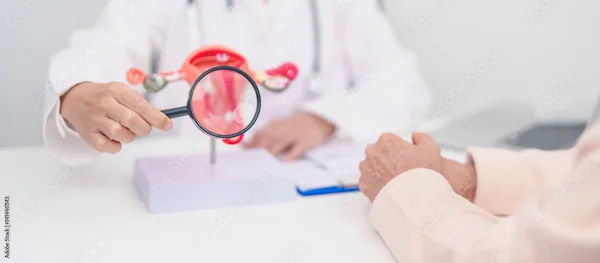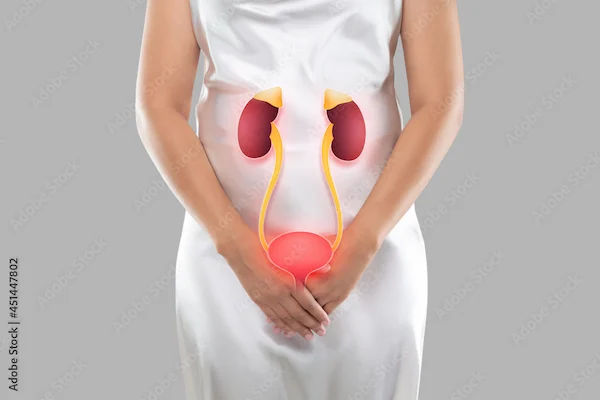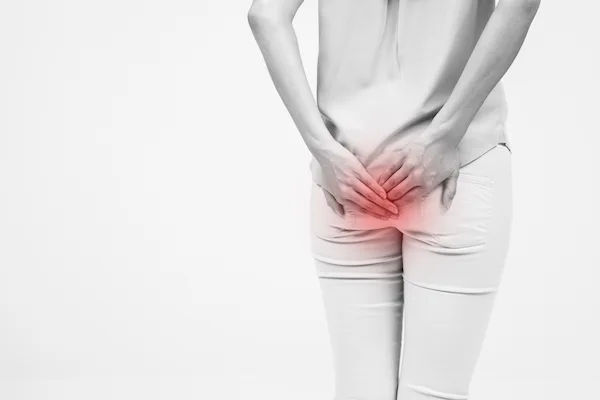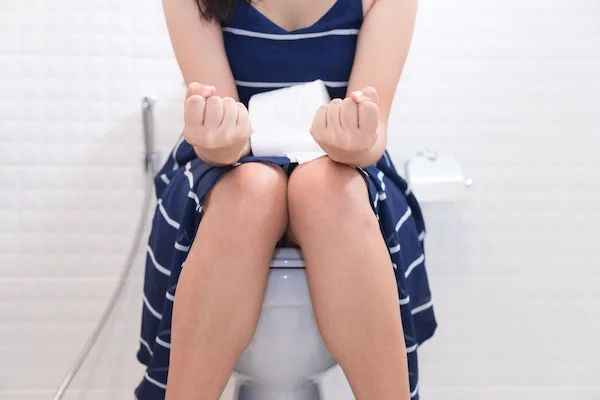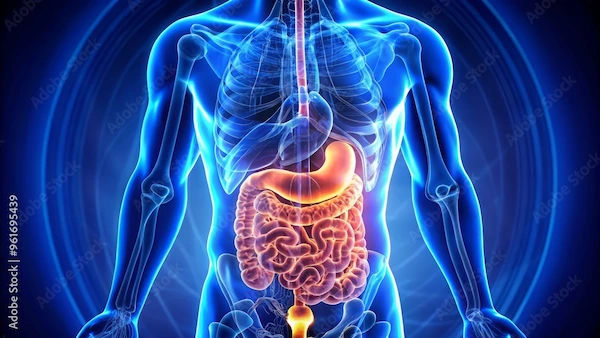Causes Of Urinary Retention After Hysterectomy
Learn about the common causes of urinary retention after a hysterectomy, including nerve damage, anaesthesia effects, and post-surgical swelling, along with treatment options.

Written by Dr.Sonia Bhatt
Last updated on 4th Jul, 2025

Introduction
Undergoing a hysterectomy (surgical removal of the uterus) is a major procedure, and while it often brings relief from certain health conditions, some women experience urinary retention afterward. If you're facing difficulty passing urine or feel like your bladder isn't emptying completely, you're not alone. This article explains why urinary retention happens after a hysterectomy, what symptoms to watch for, and how to manage it effectively.
What Is Urinary Retention?
Urinary retention is the inability to empty the bladder fully or at all. It can be:
Acute (sudden and severe): A medical emergency requiring immediate attention.
Chronic (long-term): Occurs gradually and may persist over time.
After a hysterectomy, some women experience temporary or prolonged urinary retention due to changes in pelvic anatomy and nerve function.
Why Does Urinary Retention Happen After Hysterectomy?
Several factors can contribute to urinary retention post-surgery:
1. Nerve Damage
The bladder and pelvic floor muscles are controlled by nerves that may get stretched or injured during surgery, leading to weakened bladder contractions.
2. Swelling or Inflammation
Post-surgical swelling can press on the urethra (the tube that carries urine out of the body), making it harder to urinate.
Consult Top Specialists To Know The Exact Cause
3. Bladder Muscle Weakness
Anaesthesia and prolonged catheter use can temporarily weaken bladder muscles, reducing their ability to contract properly.
4. Pelvic Floor Dysfunction
The pelvic floor muscles support the bladder, and surgery can sometimes disrupt their function, leading to retention.
5. Psychological Factors
Pain or fear of discomfort while urinating post-surgery may cause subconscious holding of urine, worsening retention.
Symptoms of Urinary Retention
Watch for these signs:
Difficulty starting urination
Weak or interrupted urine stream
Feeling like the bladder isn’t fully empty
Frequent urge to urinate but little output
Lower abdominal discomfort or bloating
In severe cases, inability to pass urine at all (requires urgent care)
How Is It Diagnosed?
If you suspect urinary retention, your doctor may recommend:
Bladder scan (ultrasound): Measures leftover urine after urination.
Urodynamic testing: Checks bladder function and pressure.
Cystoscopy: A small camera examines the bladder and urethra.
Managing and Treating Urinary Retention
Here are some common approaches to managing and treating urinary retention, depending on its underlying cause and severity.
1. Short-Term Solutions
Catheterisation: A temporary catheter helps drain urine until bladder function improves.
Medications: Drugs like alpha-blockers relax the urethra for easier urination.
2. Long-Term Management
Pelvic Floor Exercises (Kegels): Strengthen the muscles that control the pelvic region.
Timed Voiding: Schedule bathroom trips every 2-3 hours to retrain the bladder.
Hydration & Diet: Drink enough water, avoid caffeine/alcohol (they irritate the bladder).
Physical Therapy: A pelvic floor therapist can help restore muscle function.
3. When to Seek Help
If you can’t urinate for over 6-8 hours.
Severe pain or bloating in the lower abdomen.
Fever, chills, or signs of infection (burning sensation, foul-smelling urine).
Prevention Tips
Follow post-surgery care instructions carefully.
Start gentle movement like walking as advised to improve circulation.
Avoid constipation as straining worsens bladder issues.
When to Consult a Doctor?
If urinary retention persists beyond a few weeks or causes discomfort, consult a urologist or gynaecologist. Early intervention prevents complications like infections or kidney issues.
If you're experiencing urinary retention after a hysterectomy, Apollo 24|7 offers expert consultations and diagnostic tests. You can book an appointment easily online for personalised care.
Conclusion
Urinary retention after a hysterectomy can be distressing, but it’s often temporary and manageable. Understanding the causes and seeking timely medical advice can help you recover smoothly. Stay patient, follow your doctor’s guidance, and don’t hesitate to ask for support.
Would you like to speak with a specialist? Schedule a consultation today for expert care.
Consult Top Specialists
Consult Top Specialists To Know The Exact Cause

Dr. Swati Shah
Surgical Oncologist
15 Years • DNB Surgical Oncology, certified Robotic Cancer Surgeon
Ahmedabad
Apollo Hospitals Gandhinagar, Ahmedabad
(25+ Patients)

Dr. Nilanjana Das
Obstetrician and Gynaecologist
5 Years • MS (O&G)
Guwahati
Apollo Personalized Health Check Centre, Guwahati

Dr. Vidya Konduri
Obstetrician and Gynaecologist
9 Years • MS
Chinagadila
Apollo Hospitals Health City Unit, Chinagadila
(25+ Patients)

Dr. Karuna Ratwani
Obstetrician and Gynaecologist
11 Years • MBBS, MS( Obstetrics & Gynaecology), F.MAS, FICRS Advanced Diploma in Minimal Access surgery Fellow of International College of Robotic Surgeons Diploma in Reproductive Medicine, Kiel-Germany Masters in Cosmetic Gynaecology , Greifswald-Germany Masterclass in Obstetrics & Gynaecology Ultrasound ( ISUOG, UK)
Delhi
Apollo Hospitals Indraprastha, Delhi

Dr. Abirami S
Obstetrician and Gynaecologist
10 Years • MBBS.MS(OBG).FMAS
Chennai
Apollo Women Hospitals Thousand Lights, Chennai
(25+ Patients)
Consult Top Specialists

Dr. Swati Shah
Surgical Oncologist
15 Years • DNB Surgical Oncology, certified Robotic Cancer Surgeon
Ahmedabad
Apollo Hospitals Gandhinagar, Ahmedabad
(25+ Patients)

Dr. Nilanjana Das
Obstetrician and Gynaecologist
5 Years • MS (O&G)
Guwahati
Apollo Personalized Health Check Centre, Guwahati

Dr. Vidya Konduri
Obstetrician and Gynaecologist
9 Years • MS
Chinagadila
Apollo Hospitals Health City Unit, Chinagadila
(25+ Patients)

Dr. Karuna Ratwani
Obstetrician and Gynaecologist
11 Years • MBBS, MS( Obstetrics & Gynaecology), F.MAS, FICRS Advanced Diploma in Minimal Access surgery Fellow of International College of Robotic Surgeons Diploma in Reproductive Medicine, Kiel-Germany Masters in Cosmetic Gynaecology , Greifswald-Germany Masterclass in Obstetrics & Gynaecology Ultrasound ( ISUOG, UK)
Delhi
Apollo Hospitals Indraprastha, Delhi

Dr. Abirami S
Obstetrician and Gynaecologist
10 Years • MBBS.MS(OBG).FMAS
Chennai
Apollo Women Hospitals Thousand Lights, Chennai
(25+ Patients)
